Martyna Beata Płomecka
A Deep Learning Approach for the Segmentation of Electroencephalography Data in Eye Tracking Applications
Jun 17, 2022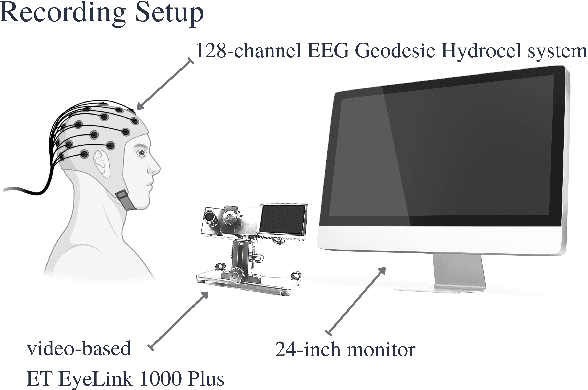
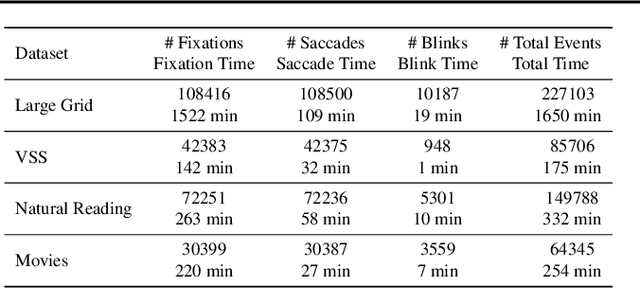
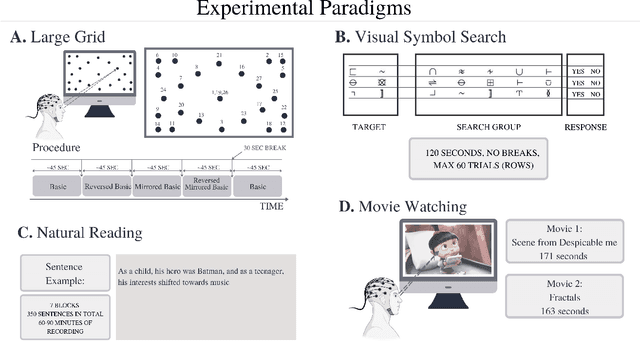
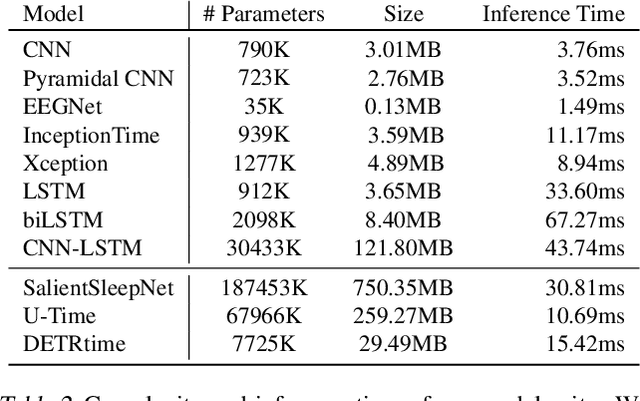
Abstract:The collection of eye gaze information provides a window into many critical aspects of human cognition, health and behaviour. Additionally, many neuroscientific studies complement the behavioural information gained from eye tracking with the high temporal resolution and neurophysiological markers provided by electroencephalography (EEG). One of the essential eye-tracking software processing steps is the segmentation of the continuous data stream into events relevant to eye-tracking applications, such as saccades, fixations, and blinks. Here, we introduce DETRtime, a novel framework for time-series segmentation that creates ocular event detectors that do not require additionally recorded eye-tracking modality and rely solely on EEG data. Our end-to-end deep learning-based framework brings recent advances in Computer Vision to the forefront of the times series segmentation of EEG data. DETRtime achieves state-of-the-art performance in ocular event detection across diverse eye-tracking experiment paradigms. In addition to that, we provide evidence that our model generalizes well in the task of EEG sleep stage segmentation.
EEGEyeNet: a Simultaneous Electroencephalography and Eye-tracking Dataset and Benchmark for Eye Movement Prediction
Nov 10, 2021
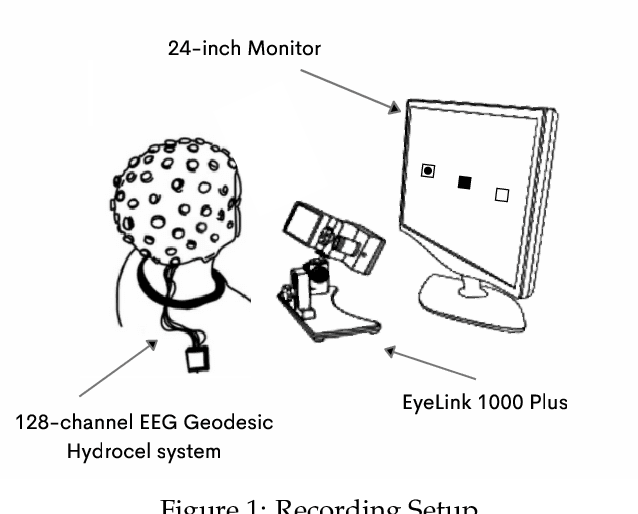
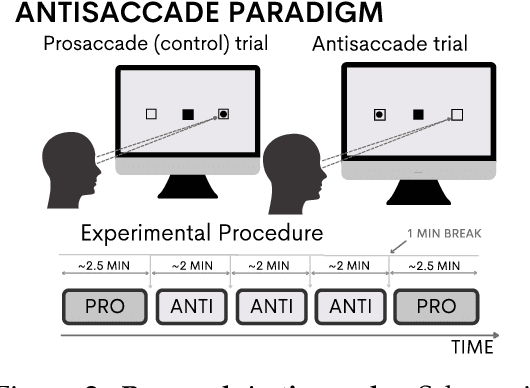
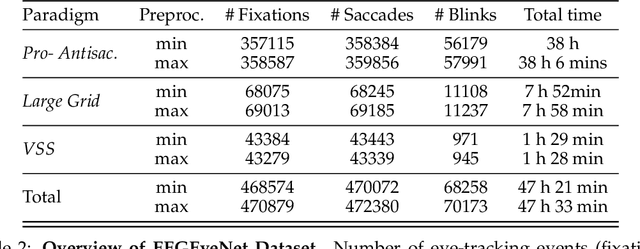
Abstract:We present a new dataset and benchmark with the goal of advancing research in the intersection of brain activities and eye movements. Our dataset, EEGEyeNet, consists of simultaneous Electroencephalography (EEG) and Eye-tracking (ET) recordings from 356 different subjects collected from three different experimental paradigms. Using this dataset, we also propose a benchmark to evaluate gaze prediction from EEG measurements. The benchmark consists of three tasks with an increasing level of difficulty: left-right, angle-amplitude and absolute position. We run extensive experiments on this benchmark in order to provide solid baselines, both based on classical machine learning models and on large neural networks. We release our complete code and data and provide a simple and easy-to-use interface to evaluate new methods.
 Add to Chrome
Add to Chrome Add to Firefox
Add to Firefox Add to Edge
Add to Edge